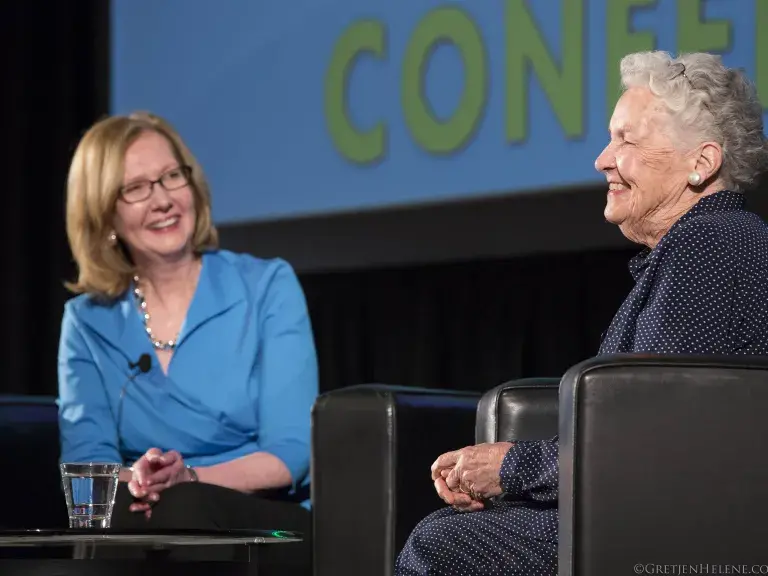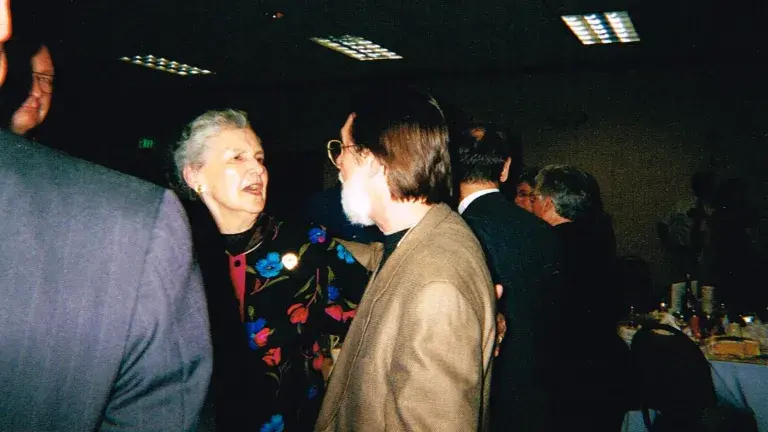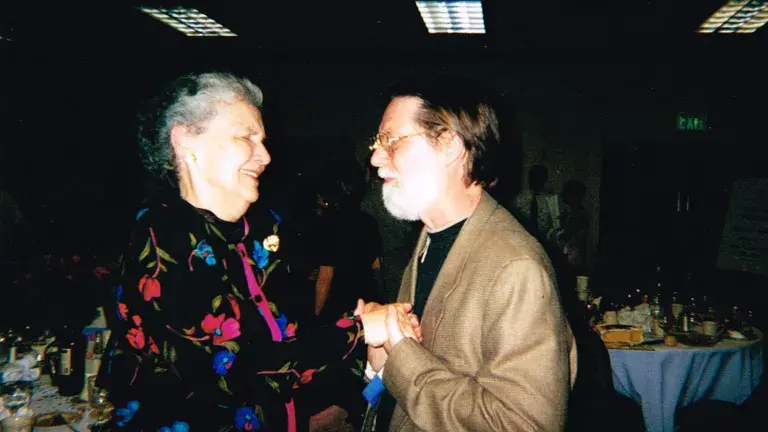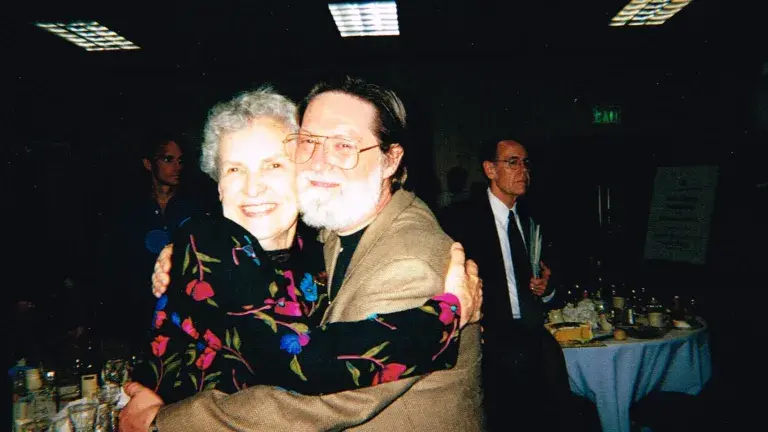
Register by October 17 to Secure Your Spot!
| Registration Type | Member Price |
|---|---|
| Early Bird Registration (Sept. 11-Oct.3) | $750 |
| General Registration (Oct. 4-Oct.17) | $850 |
| Registration Type | Member Price |
|---|---|
| Early Bird Registration (Sept. 11-Oct.3) | $750 |
| General Registration (Oct. 4-Oct.17) | $850 |
| Registration Type | Member Price | Non-Member Price |
|---|---|---|
| Early Bird Registration (Sept. 11-Oct. 3) | $750 | $850 |
| General Registration (Oct. 4-Oct.17) | $850 | $950 |
Not a member? We'd love to have you join us for this event and become part of the Chorus America community! Visit our membership page to learn more, and feel free to contact us with any questions at [email protected].
| Registration Type | Non-Member Price |
|---|---|
| Early Bird Registration (Sept. 11-Oct. 3) | $850 |
| General Registration (Oct. 4-Oct.17) | $950 |
Think you should be logged in to a member account? Make sure the email address you used to login is the same as what appears on your membership information. Have questions? Email us at [email protected].
| Registration Type | Price |
|---|---|
| Individual Session | $30 each |
| All Four (4) Sessions | $110 |
*Replays with captioning will remain available for registrants to watch until November 1, 11:59pm EDT.
Member Professional Development Days are specially designed for Chorus America members. If you're not currently a member, we'd love to welcome you to this event, and into the Chorus America community! Visit our membership page to learn more about becoming a member of Chorus America, and please don't hesitate to reach out to us with any questions at [email protected].
| Registration Type | Price |
|---|---|
| Individual Session | $30 each |
| All Four (4) Sessions | $110 |
*Replays with captioning will remain available for registrants to watch until November 1, 11:59pm EDT.
| Registration Type | Price |
|---|---|
| Individual Session | $30 each |
| All Four (4) Sessions | $110 |
*Replays with captioning will remain available for registrants to watch until November 1, 11:59pm EDT.
Member Professional Development Days are specially designed for Chorus America members. If you're not currently a member, we'd love to welcome you to this event, and into the Chorus America community! Visit our membership page to learn more about becoming a member of Chorus America, and please don't hesitate to reach out to us with any questions at [email protected].
This collection of tributes to Alice Parker honors her life and work and shines a light on her legacy.

Composer, conductor, and teacher Alice Parker was a true champion of the power of the human voice. Since her passing on December 24, 2023, countless voices have in turn honored her life and work. These tributes from people in the Chorus America community illuminate Alice Parker’s lasting impact on Chorus America, the choral field, and beyond.
A pioneer who paved the way for future women composers, Alice wrote operas, song-cycles, cantatas, works for chorus and orchestra, hymns, and more—many of which have become part of the repertoire of choirs around the world. She even wrote a piece of music for me once, and the treasured gift included a signed and framed manuscript that hangs right here on my office wall.
I remember well the very first time I met her in person, which was akin to meeting royalty for me. I was in my early twenties when I served on the staff of the National Association for Music Education, an association with a membership of thousands of school music teachers across the country. I was a cub reporter who was sent to Alice’s apartment on the Upper West Side in New York City to interview her for the organization’s magazine. Little did I know then that I would be privileged enough to have the chance to witness her many magical powers and learn so much from Alice over the course of the next several decades.
My career took me to positions in other organizations, and during my 15-year tenure as President and CEO of Chorus America, I really got to see Alice and her many-faceted leadership skills in action. My memory is chockfull of things that Alice has said to me throughout all these years. For example, when I complained to her about turning 60 years old, with a wink in her eye she said, “Oh, Ann, it’s not so bad—now you can tell people exactly what you think without apology!”
I could join the vast chorus—pun intended—of Alice Parker admirers and wax on here about her long list of accomplishments, or about how dedicated she was to the many important roles she has played over the years as a musician mother, grandmother, and more. To me, however, Alice’s real superpower was how she got to the very *essence* of music and its meaning. Unlike some composers who ask musicians to follow the notes and other markings that they’ve put on the page with precision, Alice invited those who perform her music to take some liberties and to interpret the notes and the poetry in ways that can truly convey their meaning. And, unlike some who compose music on spec, once Alice told me that she only composed music when it would have a specific purpose, such as a commission for a particular ensemble, or a piece to be performed for a specific event, or a to further an important cause or message.
To me, that is the difference that Alice made—she completely invested her gifts in the *fundamental purpose* of this life of ours, and the underlying essence of each person’s unique gifts. I myself am still a work in progress, but I will forever strive to follow this example that Alice set for us all. And although she’s now left our world, my love and admiration for her will be endless.
Ann Meier Baker is the director of music and opera at the National Endowment for the Arts.

Alice Parker was a giant in the world of choral music. So much of Alice’s contribution to the field, starting in those early years and continuing throughout her life, was her work with the spiritual. I gloried in the days of those Shaw Parker arrangements that became definitive around the world.
Alice’s approach to the spiritual was special because she would go and visit her grandmother in the South, and so she got to hear these songs in a very natural way. She gained an affinity for them. She would say, “This is sound coming from the earth, and you sing it from the earth up.” I think what made her successful is that when she thought of the spiritual, she thought of her experiences with the music from the viewpoint of childhood on. As she grew as a person, she refined it all and brought it to fruition.
I did a video conversation with Alice for Melodious Accord about spirituals not too long ago, which we showed at ACDA in February 2023. When we were filming, I mentioned “John Saw Duh Numbuh” and her shoulders started going up and down and she was just singing away. Her energy and feel for the music was just amazing and she was a fount of information.
Her commitment and Robert Shaw’s commitment with the arrangements for the RCA Victor recordings that they worked on in the 1950s and 1960s was that they agreed the melody had to be the most important thing. That became a guiding star for Alice for the rest of her life. So that’s the way she wrote those arrangements. And then with Shaw's sense of rhythm and her own innate sense of rhythm, they came to life. The Robert Shaw Chorale recorded those arrangements, and the records became bestsellers in the United States. They cemented the spiritual’s status in the eyes of the “art world.”
Of course, William Dawson and Nathaniel Dett and many others were definitive writers of the spiritual, because so much of that history comes from the historically Black universities. But Alice was bold enough to write. Even not being from a HBCU, she was going to write the songs as she knew them. I think it's the humanity in her approach that was so impressive, because she saw the spiritual as expressing the human experience rather than solely the Black experience. Dvorák called spirituals the “songs of America” and Alice took it from there and went on with it.
Every time I came to a Chorus America event, Alice was there. In the early years of knowing her, I was still fairly young in my career, requesting things and asking questions. And she was so gracious. There was never a time that I ever spoke with her that she did not extend a sincere kindness and interest in others. She liked to talk, but she also knew how to listen to people.
This experience wasn't unique to me. It was that way for everybody she met. That’s the other thing about Alice that will always stand out for me: her graciousness and her spirit.
Conductor, composer, and author André J. Thomas is an Emeritus Professor of Music at Florida State University.


Alice Parker was an icon in the field, famous for exquisite melodic shaping of English poetry, hymns, and folk texts. She was also a dear and long-time friend of mine, through our mutual work on the board of Chorus America, and since we realized that our melodic sensitivities were extraordinarily simpatico.
The music of Alice’s which I have loved the most and performed most frequently is Songstream, those wonderful poems of Edna St. Vincent Millay which she composed in 1983 for choir and piano four-hands, like the Brahms Liebeslieder. Our major collaboration was when my Vancouver Chamber Choir commissioned a magnificent choral-orchestral work on Mennonite themes, called That Sturdy Vine.
When Alice received the National Opera Association Sacred in Opera Achievement Award in 2021, I was asked to make a video as part of the presentation at the organization’s virtual conference. I struggled to make a 65-second comment fit into the requested 20-25 seconds. Seeking not-to-be-attained brevity, this was one of the six versions I came up with that ranged from the descriptive to the despairing to poesy.
ALICE!
You are our favourite! Musicians everywhere agree.
We love your music, your wonderful interpretations of great poetry.
We love your teaching and sharing ... the literal baking and breaking of bread.
We love your devotion to our shared musical causes.
You are with us every time we discover a beautiful yet humble melody.
You are our inspiration.
You are our ever-renewing breath of musical fresh air.
You are our Melodious Mentor.
You are
ALICE!
Conductor, composer, and author André J. Thomas is an Emeritus Professor of Music at Florida State University.



It was a cool October evening outside, but in the warm light of Alice Parker’s kitchen, my new friend Joe Gregorio and I were giggling in disbelief that we had been given permission to rifle through the drawers and cabinets to find what we needed to make dinner for Alice and the group of composers who had gathered for the week at her home in Hawley, Massachusetts.
After all of these years, the contents of Alice’s kitchen still appear clearly in my mind: the saved bread ties of all colors neatly stored in a drawer, the washed and dried Ziplock bags ready to be used again, the small compost bucket under the sink filled with the scraps of nearby New England farms. During that life-changing week at Alice’s Composer’s Workshop, we learned that simplicity can often be the key to writing good and lasting choral music. As Alice was such a natural at living simply in her day-to-day life, it’s no wonder that she adopted this same ideal in her music making.
My degree is in music theory, but somehow at my college I never had to take a class on counterpoint. It wasn’t required for my degree, and you better believe that I was never going to electively take something called “16th Century Counterpoint” or “18th Century Counterpoint.” However, it was the second or third day at Alice’s composer’s workshop that the word came up. Alice casually mentioned that she was almost finished writing a book on counterpoint and that she wanted to give each of us a copy of the manuscript to work through with her.
Alice starting reading from the book’s introduction and, for me, it was like watching a ray of sunlight break through a cloud. I’ll never forget her line in the book, “My conviction is that the proper answer to melody was more melody. Point/counterpoint.” She claimed that counterpoint was simply an answer to the melody; that crafting melody and counterpoint could be thought of as a conversation: one voice makes a statement, and the second voice responds to that statement.
There was nothing mathematical or formulaic about how Alice crafted counterpoint, although that was the only way I had heard counterpoint described before my time with her. According to Alice, counterpoint is a natural conversation of voices, where there is overlap as if the second voice can’t wait to join in. Ultimately, she asked us to imagine singing around a campfire with a guitar and how voices join in when they just can’t wait any longer to be a part of the song.
This was a true lightbulb moment for me and a turning point in my compositional journey. I can look at my catalog of pieces and see a distinct line that runs between “before Alice” and “after Alice.” Incorporating counterpoint into my vocal writing became a game, a puzzle that could be put together. And, my goodness, it is so much more fun to sing!
In the introduction of her book on counterpoint (The Answering Voice), Alice speaks of music in this way: “Any notes on any page are like the leaves on a tree because they can live only when connected to twig, branch, bough, trunk and roots.” I like to think of myself as one of the leaves on the Tree of Alice—I am the composer I am today because of my connection to Alice. I know thousands of leaves who would say the same.
Susan LaBarr, her husband Cameron, and their son Elliott reside in Springfield, Missouri, where Cameron is the Director of Choral Studies at Missouri State University and Susan works as Editor of Walton Music.


We live in an America riddled with lines: Pernicious lines that separate us. Red lines in neighborhoods that advance bigotry and inequity. Lines between those who have and those who have not. Lines that tribalize, bifurcate, and polarize.
With a deep affection for musical lines, Alice Parker assiduously and masterfully destroyed these lines of division and intolerance. It might not be true that America sings because of Alice Parker, but it is undeniably true that because of her genius and generosity, America sings better and with a deeper understanding and connection to one another.
Musical lines were the wondrous center of Alice’s being. Melody is where Alice Parker started, and where she finished, the fundament with which she led thousands of people to wonder and joy. Alice employed melody with unparalleled invention to create paths to happiness and accomplishment for children and seniors, believers and non-believers, professionals and amateurs. Musical lines that mix and fit and surprise and delight, exchanging that which separates us for that which brings us together.
Alice was way ahead of the curve more than 40 years ago when she started her Community Sings. In elevating community singing, Alice has lifted countless communities, connecting people with each other, to a higher purpose. Call it transformational togetherness.
Alice helped Chorus America evolve into the important force it is today, helping our organization learn how to balance the needs of both professionals and amateurs. She was a model and a ground breaker for women in a male dominated music industry. And she was a mentor, friend, and inspiration to generations of choral composers and performers. It’s one of the great blessings of my life that I am one of the many whose lives she has touched and transformed.
One of many wonderful memories: In 1998, I conducted the Baltimore Choral Arts Society in a performance of Songstream, a beautiful suite of pieces for chorus and piano that Alice composed to poems by Edna St. Vincent Millay. Alice presided over our final rehearsal, an experience that was, as one would expect, marvelous, revelatory, and inspiring. I learned more that afternoon than I had learned in semesters of study elsewhere.
So what did I learn? I learned to respect the lines. To love them in a way I hadn’t thought about loving them before. To obsess over their care and feeding. To try and try again to unlock their mysteries. To enliven and elevate them. To make those marvelous fruits of Alice’s marvelous imagination, well, “sing.”
Alice’s brilliance was rooted in her full embrace and happy obsession with nuance and subtlety; foreground and background; shape and arc; movement and rest. Alice affirmed that words mean something and when they’re sung, they mean more, resonating in the soul because of the melodies in which they are couched.
In On the Common Ground, for which she wrote the text and the music in 2021, Alice writes:
Help me find the common ground
Between the shouting and the silence,
Between the bound and the free,
Between the grief and the joy,
Between the heart and the mind.
Alice showed us how to live, how to work, and how important it is to connect our hearts and our minds. With a large heart and an abundant, generous spirit, she led us across the lines that divide, and she artfully and lovingly helped us elevate those lines that sustain, inspire, and lead us to where we need to be.
Tom Hall is the Music Director Emeritus of the Baltimore Choral Arts Society and a Director Laureate of Chorus America. He is the host of Midday, a public affairs program on WYPR Radio, the NPR affiliate in Baltimore.

One of the many ways Alice Parker’s legacy lives on at Chorus America is through the Alice Parker Fund Award, which recognizes the composition and thoughtful presentation of choral music based in the traditions of Black and Latinx communities. Established by Chorus America and Melodious Accord, this award focuses on Parker’s passion for the music landscape and traditions of many cultures, specifically those of Black and Latinx communities, which inspired her work.
This award is made possible through the Alice Parker Fund, and gifts to Chorus America in honor of Alice Parker are being directed toward the Fund. Tribute gifts may be made at chorusamerica.org/give or by calling the Development Office at 202.331.7577 x241.
These articles explore Alice Parker's life, approach to music, and inspiring body of work, often in her own words.